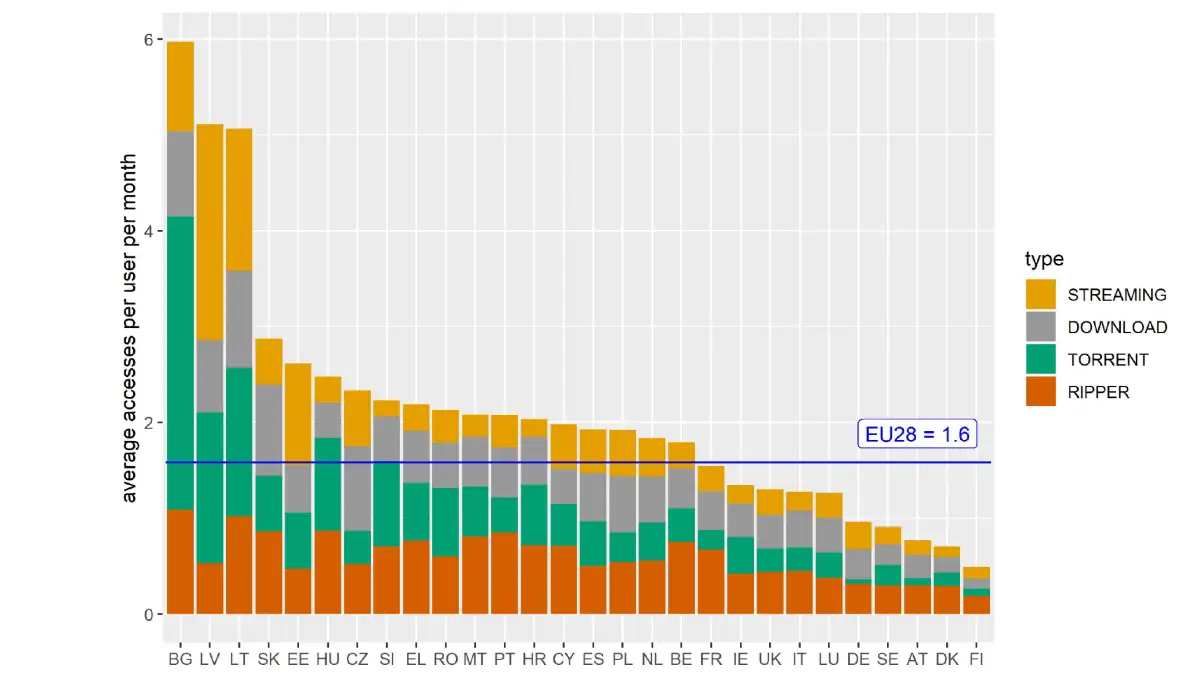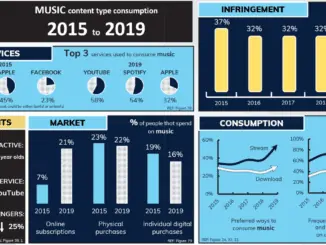
Digital piracy is declining in Europe according to recent research by the EUIPO and published in a report entitled Online Copyright Infringement in the European Union. The report examines consumption of copyright-infringing content in the 28 EU Member States, for TV programmes, music and film, using a variety of access methods.
The analysis covers the period January 2017 to September 2018 and contains data for both fixed and mobile devices, as well as the main access methods including streaming, downloads, torrents and stream ripping.
The results show that digital piracy is declining with overall access to pirated content declining by 15%. The decline was most pronounced in music at 32% followed by film (19%) and TV (8%). However, piracy remains a significant problem, more so in some Member States than in others. The average internet user in the EU accessed pirated content 9.7 times per month in 2018, ranging from almost 26 times per month in Latvia and Lithuania to less than 4 times per month in Finland.
The factors having the greatest influence on the level of piracy include, the level of income per capita and the extent of inequality. High per capita income and low degree of income inequality are associated with lower levels of illicit consumption. The overall size of the market, as measured by the number of internet users in a country, also matters: the average consumption of pirated content is lower, all other things being equal, in larger Member States. A higher acceptance of digital piracy, as evidenced in the IP Perception study, is also associated with a higher level of consumption of pirated content.
Other variables examined included awareness of legal offers (as reported in the IP Perception study) which appears to reduce consumption of pirated film but increase consumption of pirated TV content, while there was no statistically significant impact on music consumption. The report suggests that the relationship between legal offers and piracy is a complex one and warrants further study.
The EUIPO will be conducting a follow-up study in 2020 which will examine the consumption of individual pirated film titles in all 28 Member States compared to legitimate consumption of the corresponding content (e.g. box office revenues).
In September, the IFPI Music Listening 2019 report which had a global focus came up with similar results finding that ‘Copyright infringement remains a challenge for the music ecosystem. 27% of all those surveyed used unlicensed methods to listen to or obtain music in the past month, while 23% used illegal stream ripping services – the leading form of music piracy.’
To download a copy of the full report (71pp) go here.




